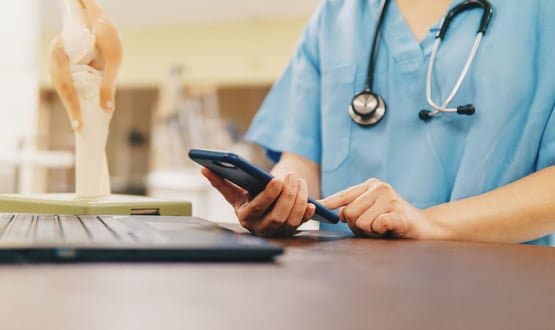University Hospitals Plymouth emergency department goes digital
- 26 May 2022

University Hospitals Plymouth NHS Trust is digitising its emergency department at Derriford Hospital with the deployment of new software modules to its EPR platform.
The introduction of ED and Patient Safety modules to the trust’s Nervecentre EPR will improve the safety of the emergency department and boost efficiencies. By digitising all nursing and medication documentation – such as triage, clerking, reviews and discharge summaries – the whole clinical team will have visibility. In addition the clinical overview will be automatically updated.
The new modules will negate the need for staff to locate paper notes, as everything will be digitised. On arrival at the ED, patients will be triaged by staff using an integrated electronic assessment in Nervecentre. This has been built around the Manchester Triage System clinical framework and will be used to manage flow safely and prioritise care.
Paul McArdle, deputy medical director at Plymouth and senior responsible officer for the ED and Patient Safety modules, said of the digitisation: “It will enhance the visibility of patients, particularly for those experiencing deterioration, create escalations, and enable staff to complete their jobs supported by the digital environment.
“It is a big step forward on our digital journey and forms an important part of our first-year ambition in our recently launched 5-year patient safety strategy.”
Nervecentre’s new EPR was first launched in the summer of 2018, where it was marketed as the first to be built from the ground-up for mobile devices.
As University Hospitals Plymouth NHS Trust rolls out the new software it will also introduce mobile working to the department. This will enable the automation of time-critical workflows in Plymouth’s ED, such as screening for sepsis.
Nanette Bothma, CMIO at Plymouth and clinical lead for the Nervecentre ED project, said: “Staff are looking forward to using a modern, agile, and bespoke configured digital system in their emergency department, embarking on using handheld devices, recording observations and clinical noting electronically for the very first time.
“It will change how we practice significantly, but we are ready for the advantages that digital clinical working will bring to our processes, efficiencies and most importantly improving patient safety.”
Data from multiple sources will constantly be reviewed by the software, and if it detects a patient may be at risk from sepsis it will alert the nurse in charge, to ensure timely intervention.
Staff at the Plymouth hospital will be able to use phones to capture clinical notes and observations, supporting mobile working and creating a continually updated, real-time view of the department and its patients.
Nervecentre CEO, Paul Volkaerts, said: “We’re seeing a real appetite for digitising healthcare as trusts look to progress their digital maturity. We’re delighted to be working closely with the project team at Plymouth to make sure the go-live in their ED is a success, and I look forward to hearing how our modern technology helps them provide safe, efficient, and effective care for their patients.”
In summer 2021, University Hospitals Plymouth introduced Nervecentre’s Hospital at Night as part of its digital transformation plans.




